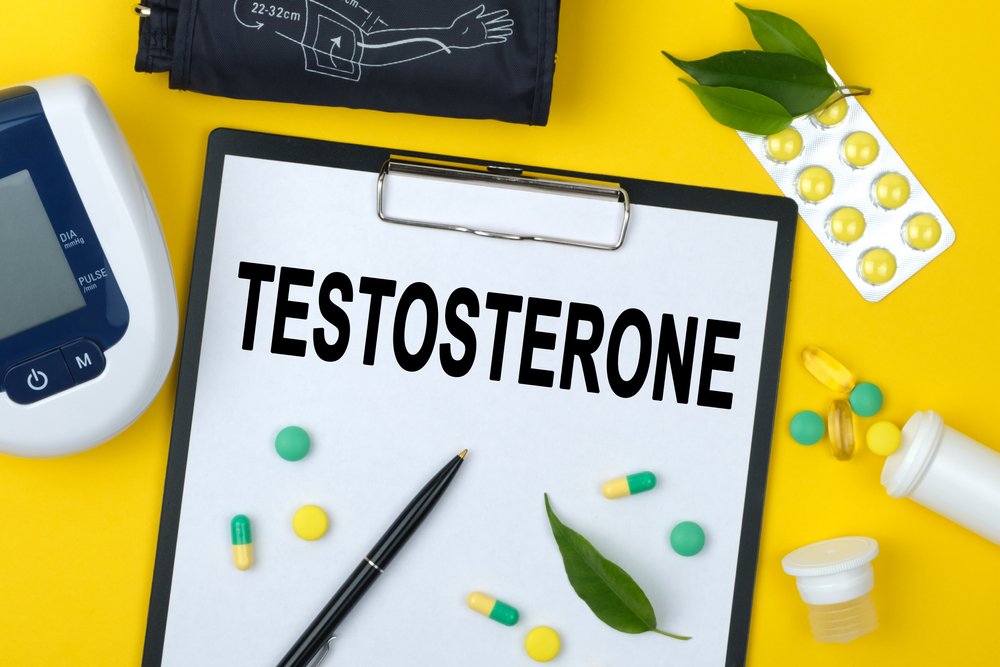Hypogonadism, or lower levels of testosterone, is considered a medical condition that is characterized by insufficient levels of testosterone operating within one’s body. Testosterone is a complex hormone mainly responsible for various functionalities, including muscle development, bone density, sexual health, and energy levels. Whenever the levels of this hormone drop below the normal par, it eventually leads to a massive range of symptoms that affect the overall well-being of a person, leading to low testosterone treatment in Atlanta.
In these instances, testosterone replacement therapy or TRT is recommended for the low testosterone treatment in Atlanta to restore the hormonal balance. But, before you consider undergoing this treatment, it is vital to stay informed about the primary features of the entire process.
Consult with a Healthcare Professional
The initial step involved in addressing the lower levels of testosterone is to look for proper guidance from highly qualified healthcare professionals. The symptoms, including reduced libido, fatigue, and mood swings, would often indicate a lower level of testosterone; however, a complete assessment involving blood tests is necessary for an effective diagnosis. The healthcare provider assesses your entire health, medical history, and the seriousness of the symptoms to determine the well-suited treatment plans.
Understanding Testosterone Replacement Therapy (TRT)
Testosterone therapy Atlanta, GA, includes the administration of exogenous testosterone to increase the hormonal levels of the body. It is attained through numerous channels, including patches, injections, implants, or gels. Every method has pros and cons, and the choice relies on factors including lifestyle, patient choices, and the physician’s recommendations.
- Risks and Benefits
Although TRT is an effective treatment to help alleviate the symptoms of low testosterone, it is vital to stay aware of the possible risks and benefits. The benefits here involve greater levels of energy, enhanced mood, improved libido, and good muscle mass. But, TRT comes with its own set of risks and adverse effects like fluid retention, acne, and changes in the levels of cholesterol. The long-term results and the possible heart risks are subject to ongoing research.
- Monitoring and Regular Check-ups
Whenever you are on TRT, regular monitoring is a must-have in terms of ensuring that the levels of testosterone are within the targeted range while addressing growing concerns. The periodic blood tests and the follow-up appointments with your healthcare provider can aid in adjusting the treatment plan, if required, to manage the potential side effects.
- Lifestyle Factors
Although TRT is an effective treatment, it is vital to identify that it is never a standalone solution. The various lifestyle factors, like maintaining a healthy diet, regular exercise, and proper sleep, would play an essential role in helping optimize testosterone levels. Adapting to the holistic approaches to health would boost the benefits of the TRT contributing to the overall well-being.
- Potential Risks and Precautions
People considering the TRT should be aware of the potential risks and contraindications. TRT is often not suited for those with a history of prostate cancer with a few specific health conditions or different health issues. Discuss your medical history and the rising concerns with your healthcare provider, which is important for determining the accuracy of TRT to meet your distinctive condition.
- Patience and Realistic Expectations
The outcomes from the TRT would often take time to manifest, as it is vital to have sound expectations. Although a few individuals would experience visible improvements in just a few weeks, others would include several months to observe the notable changes. Open communication and patience with your healthcare provider are important during treatment.
- Alternative Treatment Options
There are numerous alternative approaches in terms of the management of low levels of testosterone, along with this hormone therapy for women in Atlanta. Modifications to the lifestyle, like weight loss, regular exercise, and a well-balanced diet, contribute to the hormonal balance. A few people would even benefit from natural supplements. However, their potential would greatly vary, and it is vital to consult with a healthcare professional before you include them in your routine.
- Fertility Considerations
For people who plan to initiate or expand their families, considerations of fertility are vital. TRT would eventually impact the production of sperm, thereby leading to less fertility. It is vital to discuss the growing concerns with fertility with your healthcare providers as they offer the best guidance to help preserve fertility while undergoing testosterone treatment.
- Potential Emotional and Psychological Impact
Low testosterone levels would impact a person’s physical and emotional well-being. Symptoms that include mood swings, depression, and irritability are often linked to lower levels of testosterone. Addressing these psychological features is a vital part of this treatment procedure. With open communication with your healthcare providers, if required, the mental health professionals would manage the emotional challenges to enhance the life’s quality.
- Cost and Insurance Coverage
The testosterone replacement therapy varies in terms of cost as it depends on the modes of administration and the distinctive treatment plans. Discussing the financial features of this treatment with your healthcare provider, including the potential insurance coverage, is vital. Knowledge of the costs involved and checking out the insurance options would aid people in making sound decisions regarding their healthcare.
- Potential Long-Term Effects
Although the short-term benefits of TRT are properly documented, the long-term effects are the key to the ongoing research. A few of the studies often suggest the possible risks that include issues with the prostate and cardiovascular events. However, people considering long-term TRT should be aware of the evolving scientific knowledge of their impacts while discussing the concerns with their healthcare provider.
- Withdrawal and Tapering
In a few specific situations, people should discontinue this therapy. It can happen due to adverse effects, rapidly changing health conditions, or other reasons. Stopping the TRT abruptly would lead to withdrawal symptoms that emphasize the importance of working closely with your healthcare provider to develop a tapering plan if there is a requirement for discontinuation.
- Legal and Ethical Considerations
In a couple of regions, using testosterone replacement therapy is made for non-medical purposes, like the athletic performance booster, which often gets subjected to ethical and legal considerations. It is vital to use TRT under the proper guidance of a quality health expert and follow the appropriate laws and regulations.
- Age-Related Considerations
The testosterone levels decline with age, and the symptoms of low testosterone are attributed to aging instead of the underlying medical conditions. It is important to consider the age-based changes while discussing with your healthcare provider whether the symptoms are within the expected range of your age. In a couple of instances, the benefits of TRT would often outweigh the possible risks, although a great number of alternative approaches is suitable.
- Potential Interactions with Medications
Before you initiate the testosterone replacement therapy, it is essential to disclose every medication, supplement, and over-the-counter drug that you have recently taken. A few of the medications would interact with the levels of testosterone, impacting their effectiveness while causing unintended adverse effects. An extensive review of the medication regime with your healthcare provider would ensure safer and more coordinated treatment approaches.
- Regular Exercise and Testosterone Levels
Physical activity is a well-known factor that influences the levels of testosterone. It incorporates the daily exercises right into your routine, complementing the impacts of testosterone replacement therapy. The strength exercises specifically have been shown to boost the production of testosterone. However, it is essential to discuss the key level of exercise with the healthcare provider regarding the excessive or intensive workouts that might have potential side effects.
- Holistic Health Approach
The optimal level of health consists of more than just addressing testosterone levels. Adapting to this holistic approach is the key to mental, emotional, and social well-being. The practices involve the management of stress and the essential needs of emotional and social well-being. The practices involving stress management, maintaining positive social links, and mindfulness would contribute to a healthy lifestyle that complements the perks of testosterone replacement therapy.
- Post-Treatment Monitoring and Maintenance
After you have achieved the desired levels of testosterone and experience the symptoms that involve better relief, ongoing monitoring is the key. Regular checkups with your healthcare provider would ensure that your hormonal balance is maintained adequately with the emerging issues that are promptly addressed. It is vital to remain engaged in your healthcare journey for your well-being for the long term.
- Hormone Levels Fluctuations and Individual Responses
The individual responses to testosterone replacement therapies would often vary, with the hormonal levels fluctuating throughout this treatment. Communicating effectively with your healthcare provider regarding the changes in the concerns and symptoms is vital. The necessary adjustments to the treatment plan would be necessity.
- Nutritional Considerations
An adequately balanced diet is the key to your overall health, including hormone regulation. Specific nutrients such as vitamin D, zinc, and omega-3 fatty acids would play a distinctive role in testosterone production. Discussing the dietary considerations with your healthcare provider or a nutritionist would ensure that your nutritional needs are met, potentially boosting the effectiveness of the testosterone replacement therapy.
- Sleep Quality and Testosterone
Adequate sleep is the key to proper hormonal regulation involving testosterone. The bad sleep quality or the insufficient sleep would negatively affect testosterone levels. Emphasizing the proper sleep hygiene practices like maintaining consistent sleep schedules and creating a conducive sleep environment. Addressing such issues becomes a complementary strategy supporting the perks of testosterone replacement therapy.
- Public Perception and Stigma
There are numerous societal outlooks along with the stigmas that get linked with testosterone replacement therapy, specifically under the context of bodybuilding or sports. It is vital to make the best decisions based on your health needs that need not be swayed by external options. Start by discussing your treatment choices with your healthcare provider and search for the best support from those who know about the medical context to aid you in navigating the potential societal stigma.
- Travel Considerations
People who undergo testosterone replacement therapy and travel frequently should plan in the best way. It includes the key considerations involved with the transportation of the medications following the treatment schedules across different time zones and ensuring better access to healthcare services across varied locations. Discuss all your travel plans with your healthcare provider enabling the right preparation and continuous care.
- Ongoing Research and Treatment Advances
The platform of testosterone replacement therapy is under constant evolution with the ongoing research into exploring new treatment modalities and knowledge of the long-term effects. Stay informed about the latest research and the findings that empower you to make the best decisions regarding the treatment. Engage in better discussions with your healthcare provider about the emerging options for treatment to help you benefit through the latest advancements in this platform.
- Legal and Ethical Considerations in Sports
For the ones involved in competitive sports, it is essential to have an awareness of the legal and ethical considerations that surround the use of testosterone replacement therapy. Varied sports organizations have distinctive rules and regulations related to the use of hormonal therapies, as it is vital to follow these guidelines to maintain fair competition and sportsmanship.
- Impact on Body Composition
Testosterone plays a key role in the development of muscle and the distribution of fat. Although testosterone replacement therapy would contribute to more enhancements to the muscle mass and strength with the individual responses that change, Managing the expectations and discussing the realistic goals with your healthcare provider would aid you in setting the achievable targets for the changes to the body’s composition.
- Potential Impact on Cardiovascular Health
Research on the links between testosterone replacement therapy and heart health is ongoing. A few studies would eventually suggest potential cardiovascular perks, although the rest would raise concerns about the long-term effects. It is vital to discuss your heart health and the other existing conditions with your healthcare provider to determine the highly appropriate course of action and monitoring.
- Sexual Health Considerations
Although testosterone replacement therapy would positively affect sexual functionality and libido, it might not be the standalone solution for sexual health conditions. Addressing these relationship-based or psychological factors with the healthcare provider or the sexual health specialists would effectively contribute to the extensive approach toward sexual well-being.
- Mood and Mental Health
Lower levels of testosterone are often linked with mood swings, depression, and irritability. Although testosterone replacement therapy enhances these symptoms, mental health is often considered the challenging feature that involves additional support. People who experience persistent issues with their mood should consider consulting with a mental health expert in conjunction with their testosterone treatments.
Take Control of Your Health Today!
If you or your loved one experiences the symptoms of lower levels of testosterone, then it is time that you take charge of your health. Always stay informed and get in touch with platforms like Rejuvenate HRT to explore the range of options you have related to low testosterone treatment in Atlanta. Start empowering yourself with comprehensive knowledge to make the best decisions for optimizing your well-being. Your journey to the hormonal balance starts today!











